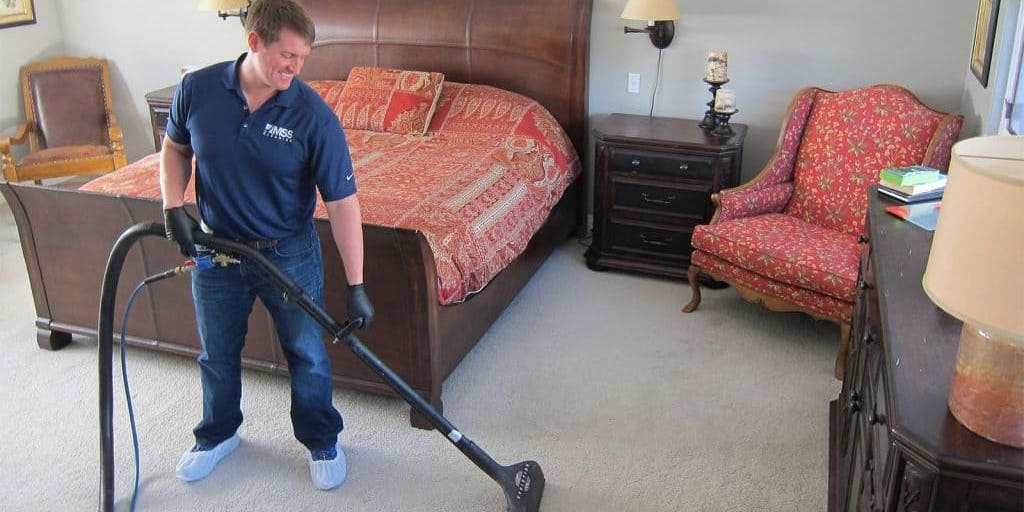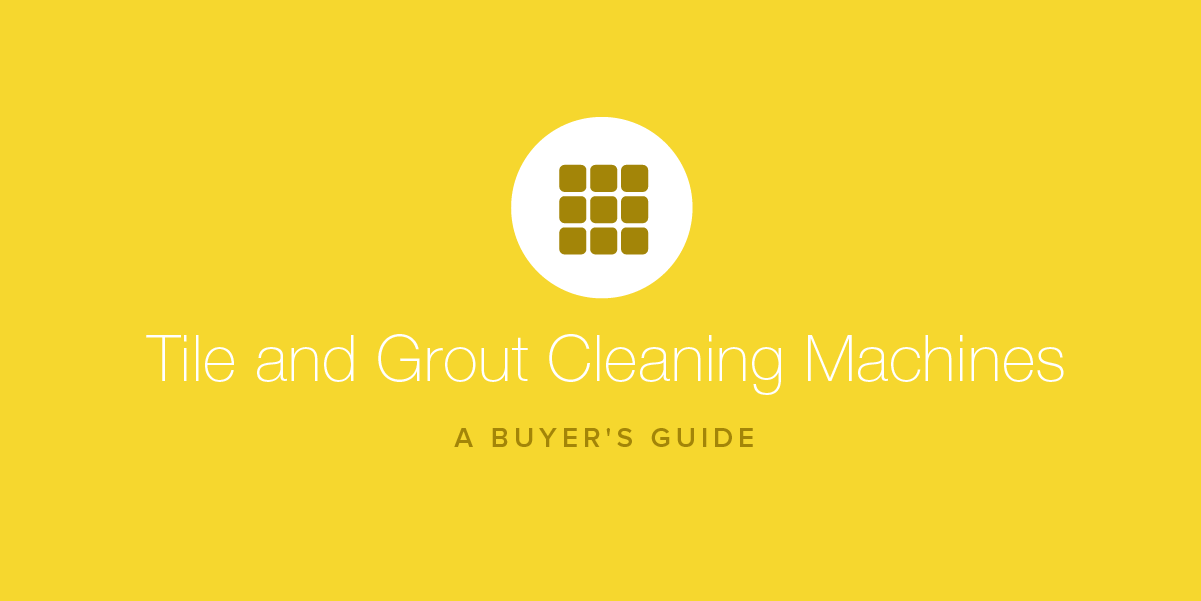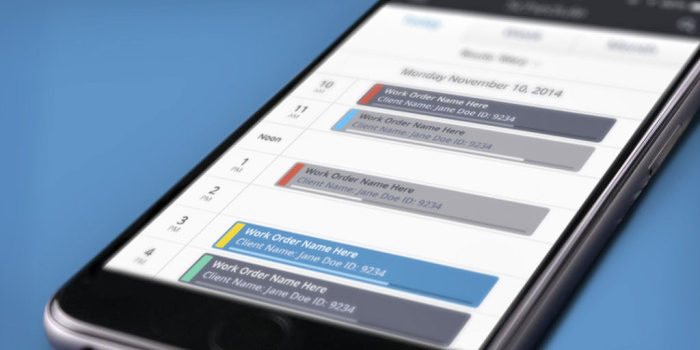Things I’ve Learned From Buying and Operating a Cleaning Company
- April 23, 2019
- By: Vonigo
By Andrew Rohr, owner of MSS Cleaning in Denver, Colorado.
About 4 years ago, I decided that the corporate world was no longer a fit for me, or I a fit for it. Around the same time, my wife and I had bought a new home that needed work. To make matters worse, we had a major hail storm that flooded the basement, destroyed the roof, wrecked the air conditioning system, destroyed a glass door and flooded through the kitchen ceiling which also damaged the electrical and hardwood floor.
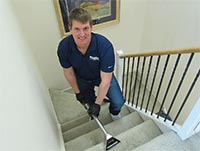
Through the process of hiring and working with contractors in nearly every trade, I found myself complaining about the awful communication, poor service, and lack of quality workmanship. I decided that if these guys could run a service business, I could run a better one.
Instead of starting from scratch, I began looking for small local businesses to purchase. I purchased a Denver carpet cleaning company which I quickly renamed to MSS Cleaning. Along the way, I’ve learned a lot, and I’m here to share some of those tips on starting, and running, a small services business.
1. Do Your Due Diligence
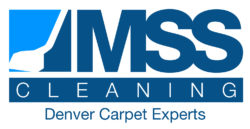
If you’re buying a business, make sure you do more due diligence than you possibly think necessary.
I thought I did enough and suffice it to say, I didn’t. After a number of conveniently blown-up contracts immediately after the purchase and plenty of other sketchy activity, I realized I had bought someone else’s problem. Fortunately, we dug ourselves out of the hole we initially found ourselves in.
2. Choose the Right Vendors
Establish good, but firm relationships with your vendors.
Ideally, you’d like to find two or more vendors and create a “champion/challenger” model whereby you can have a primary vendor, the champion, and a secondary vendor who wants to earn your business, the challenger. This will help you to keep costs in line.
3. Use Economies of Scale for Cost Savings
Buy in bulk when you are certain you are going to be using something a lot.
We have certain carpet cleaning solutions we buy in bulk. We buy six months’ worth of supplies ahead of time, allowing us to hit breakpoints as well as further negotiate prices with our vendors on the large orders. This routinely saves us 15-20% over what we’d otherwise spend. That’s a major opportunity for cost savings.
Beyond that, we have 30-day terms, after which time we can pay off the expense on a credit card. Not only do we get clear benefits to our cash flow, but we pick up the credit card points too, and who doesn’t love that?
4. Seek Fleet Discounts
If you have a fleet of vehicles, use that as a negotiation tool with salespeople when buying new vehicles, local shops in terms of oil changes and repairs, and so on.
Many will provide discounts and price breaks knowing you have multiple vehicles.
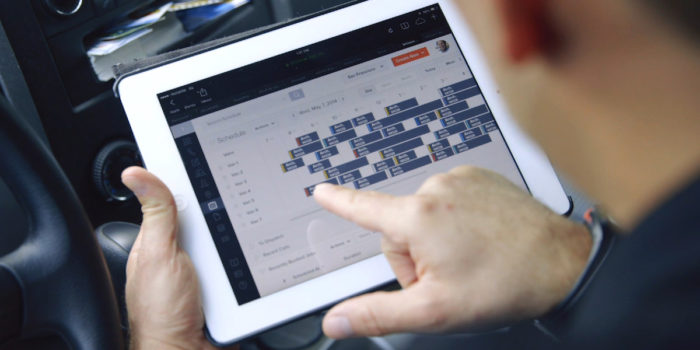
5. Go Paperless
Eliminate paper wherever possible. Digital invoices, digital time tracking, review automation, etc. If your business is still using paper invoices, work orders, and time tracking, you’ll be shocked at how much time and energy you can save by going digital with cleaning business software.

6. Use Compensation Incentives
Be creative with your compensation. This isn’t the corporate world, where all the bonuses are tied into some obscure system that no one really understands.
As a service business, you can be far more creative. One of my favorite incentives is to pay your employees a bonus when a customer writes a 5-star review for a job they did. This is the best marketing you can do.
Your employees will always want to do great work and you get to pay them, instead of a marketing company, for their efforts. To be clear, I’m not advocating paying customers for reviews (don’t do that), I’m advocating paying your employees when their great work organically results in a 5-star review for your company.
7. You Always Lose When You Compete on Price
Do better work and then charge more for it. Customers are willing to pay for higher quality work done by professionals who care.
If you provide an amazing service or product, you should be able to command a higher price than if you’re not. Over time, move upmarket to better-paying customers. We’ve seen that customers who are willing to pay more up front tend to be more satisfied with the high-quality work we do, complain less, and don’t try to haggle. You have enough hassles to deal with.
Cheap, argumentative customers are not something you need in your life. There are plenty of cheaper companies doing lower quality work who are happy to service these customers. Identify your most profitable customers and go after them.

8. Vary Your Marketing
Don’t put all your marketing eggs in one basket. The other day, I was talking to a friend who got badly burned by a Yelp “algorithm change” which may or may not have had something to do with him not paying to advertise on their platform.
Previously Yelp had been a huge revenue driver for him. He had to scramble to come up with some alternatives, fast. Similarly, I’ve known companies to put everything they have into other online platforms only to have that channel no longer work for them. Spread the risk out and advertise across many mediums, both digital and otherwise.
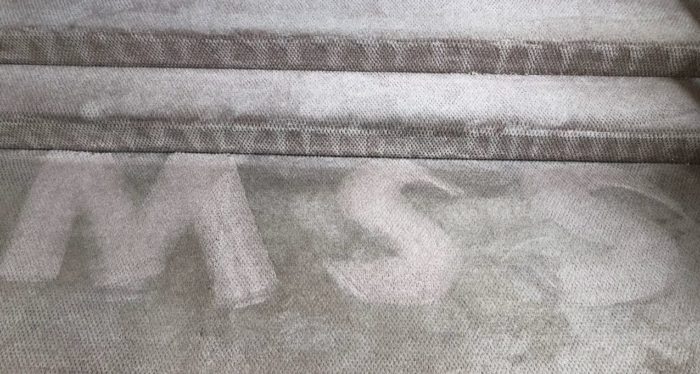
9. Make Sure You Nail the Marketing Basics
Google, Yelp, Facebook, Homeadvisor, Angi, etc. all provide free platforms for businesses to hang up a shingle. Making sure all of these profiles are completely filled out and updated is easy work with a big return on investment.
Post photos and content when you can. While you’re at it, establish citations on all the major directories too. Any profile that consistently links back to your website is going to help drive traffic.
10. Own Your Mistakes
Suck it up when you make a mistake. Mistakes are inevitable in any business and your customers are going to be upset. When that happens, apologize profusely and do whatever you can to make it right for them.
Sometimes all you can do is apologize, other times a discount or refund is warranted. Almost always, you’re better off taking a financial hit (or one to your pride) versus dealing with the fall-out of a furious customer who otherwise is going to tell everyone what an awful company you are, both in person and online.
11. The 1/100 “Scammer Tax”
Okay, it’s not really a tax, just something I made up. 99 out of 100 customers are decent honest people. One out of a hundred, though, will be a dishonest cheat or a liar.
They’ll try to claim you offered them something you didn’t. They’ll claim the perfect job you did was subpar and will want a full refund. They may even try to manipulate you by threatening negative reviews, and more.
Over time, you start to learn to identify these people and not work with them up front, but sometimes they slip through. When this happens and you’re now stuck between a rock and a hard place, pay their ransom and walk away. Be polite and kind, and just do what you need to do to make them go away. Then move on from it and get back to running your business!
Want to learn about how carpet cleaning software can help you manage and grow your business? Book a free, private demo of Vonigo.
